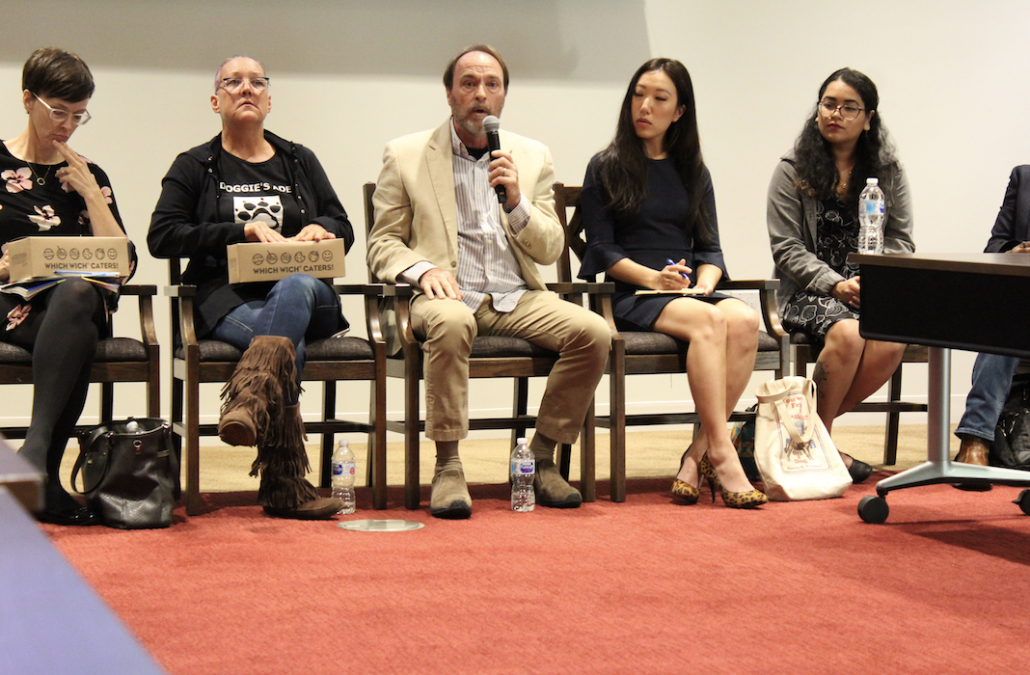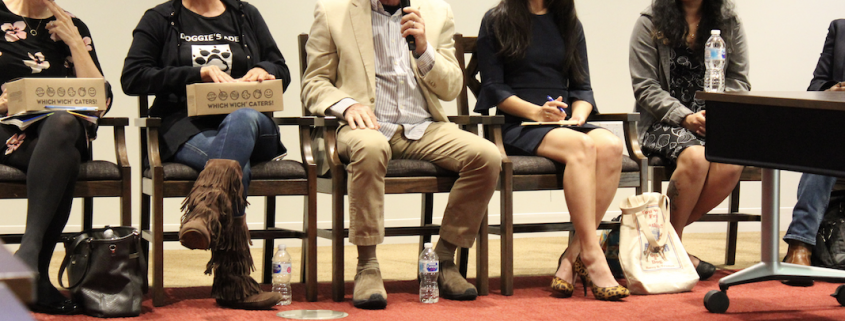Annenberg hosts ‘A conversation about LA’s homeless crisis’

Community activists, Los Angeles officials and individuals who have experienced homelessness joined in conversation with one another Tuesday to discuss policy initiatives and the impact of poverty. The event, titled “A conversation about LA’s homeless crisis,” was hosted by Annenberg School for Communication and Journalism professors Mary Murphy and Sandy Tolan.
According to the most recent records from the Los Angeles Homeless Services Authority, 50,000 Angelenos are currently experiencing homelessness. Around 9% of four-year undergraduate students in the U.S. have reported that they experienced homelessness in 2018.
Tolan began the event by introducing the students who organized the event and their two-year project on homelessness reporting. The projects included stories of people facing evictions, individuals living in their cars and even a USC student’s struggles with remaining in a stable housing unit.
Murphy mentioned her advocacy work with the homelessness initiative, which specifically centers its efforts on Skid Row.
“I’ve been volunteering in Skid Row for 30 years, I’ve been volunteering for people experiencing homeless,” Murphy said. “This kind of panel where we have people who have experienced homelessness, people who are trying to solve the problem, this communion, this conversation is part of the answer.”
Panelist Diana Cruz was the first individual to share her experience with homelessness, particularly with evictions. She said her situation is not unusual; however, there continues to be limited resources and a lack of support for her as well as others.
“When I was young, [my family] was facing no fault eviction,” Cruz said. “Last year, the landlord served us another no fault eviction … If you don’t know what your resources are or if you are unable to put in the time to find these resources, your options are extremely limited.”
Craig Mitchell, a Los Angeles Superior Court judge and founder of the Skid Row Running Club described his organization as an opportunity for individuals to come together and form a community between people who experience homelessness and homelessness advocates.
“[The club] provides a sense of community … They are estranged from their family, they have destroyed relationships in the process,” Mitchell said. “One of the fundamental things that all human beings needs is relationships. … [The program] is a partnership of people like me who are not [experiencing homelessness] and people who are.”
Janet Kim, representative of the SELAH Neighborhood Homeless Coalition, said that the program was established as a way to get to know the homeless community as well as break barriers and stigma surrounding the issue.
“There’s all these things that we don’t think about that we take for granted [such as] mailing services, or internet, or electricity or transportation,” Kim said. “There’s a lot of misinformation as to the kinds of people experiencing homelessness — ‘Oh they don’t want to work’ or ‘Oh they’re all mentally ill,” and that’s just not true.”
Panelist Demetri Bryant, who has experienced homelessness in the Los Angeles area, said that people who have dealt with the same conditions have to advocate for themselves because no one else in the community cares enough to advocate for their rights.
“When you’re a homeless person you need to be proactive,” Bryant said. “You need to be making an effort to do for yourself, and you can’t sit around waiting for people to do stuff for you because they won’t.”
Murphy ended the panel by discussing the responsibility that journalists and students have to be aware of the homeless community.
“For journalists, one of the reason we did this class … is because this is a priority for journalists — we have to expose this, we have to write about it,” Murphy said.
Kelly Chung, a junior majoring in business administration, said that listening to different perspectives on the issue of homelessness provided helpful insight.
“I thought it was really helpful to get different perspectives from people who are working in politics, from people working in nonprofits and for the people [who have] experienced homelessness themselves,” Chung said.

